How to Remove Persistent Water Stains From Hardwood Floors
Anyone with hardwood flooring knows the nightmare of staining all too well, and there is no stain more dreadful than a water stain. While some hardwood water stains are clear, others are dark, but most have one thing in common; they can be permanent!
Unfortunately, water stains are among some of the most unsightly hardwood floor blemishes that can befall your glorious hardwood floors. When they pop up, they’re difficult to deal with, and if they have been there for months, the only solution may be to sand them out.
Contrary to popular belief, removing water stains from hardwood floors is possible. That is even true with older persistent water stains. In this article, we offer tips and methods to help remove stubborn water stains from your hardwood flooring before they set in and become a visual nuisance.
Please note that before attempting to use any of the following methods to remove water stains from your hardwood floors, it is essential that you clean your hardwood flooring first and wipe away any dust. By doing so, you can help to avoid scratches or additional damage.
The Different Types of Hardwood Flooring Water Stains
Although waterproof hardwood floors are becoming more popular, most customers still opt for traditional hardwood floors for their classic beauty, even if they are a little more prone to water damage. The first step in dealing with water stains on hardwood floors is identifying the type of water stain that you are dealing with. There are essentially two types of hardwood floor water stains, light stains, and dark stains, both of which have their own level of difficulty when it comes to removal.
Light water stains are often the result of moisture trapped near the surface level of the hardwood floor. The most common light water stain occurs on wood furniture in the form of a water ring or ring stain that appears when a glass is placed on a wooden table without a coaster. When it comes to hardwood floor stains, light water stains are often the result of condensation. For example, condensation from an air conditioning unit is one of the most common culprits of light water stains on hardwood flooring.
Dark water stains on hardwood flooring are usually much deeper and signal a more serious, persistent, and long-term moisture problem. Dark water stains on hardwood flooring are often due to issues like trapped moisture beneath the subflooring, constant humidity, or other serious, ongoing issues. In many cases, removing dark water stains on wood flooring requires sanding and refinishing.
How to Remove Light Water Stains from Hardwood Flooring
Light water stains are typically superficial, like those left by a moist drinking glass or some other surface condensation. Here are a few ways to remove them:
Pastes
These DIY recipes combine everyday household products to create a paste that can remove light water stains on wood flooring within minutes:
- Baking Soda Paste: one part water and one part baking soda.
- Salt Paste: common table salt with a few drops of water.
Rub these pastes gently over the stain, applying clear nail polish afterward.
Petroleum Jelly
When those DIY recipes aren’t working, try some petroleum jelly. In this case, you will want to apply the petroleum jelly to the light water stain and leave it overnight. Then, you can wipe it away the next day, and sometimes, the stain will have disappeared.
Clothing Iron
A clothing iron can help pull up all that moisture from inside a light water stain on a hardwood floor and visually remove 80-95% of the stain until it’s no longer visible to the naked eye. All you have to do is ensure the clothing iron is empty of water and lay a cotton towel down over the water stain. Once the iron is heated on its lowest setting, lay the clothing iron on the towel directly over the hardwood floor water stain. Press the iron against the stained area for a few seconds, and lift it to check on the water stain.
Repeat this process five or more times until the light water stain is gone. If it works, you should gradually see the stain with each try.
Please note that you should never use this method with the clothing iron on anything other than the lowest possible setting. Also, always use a towel and never apply the iron directly to your hardwood floors, as this can severely damage the flooring.
How to Remove Dark Water Stains from Hardwood Flooring
Once the water has made its way through the hardwood flooring finish, it will darken the wood, creating a stain that will be more difficult to remove. When this happens, you must remove the stain beyond the finish layer.
Here are a few ways to remove dark water stains from your hardwood floor:
Steel Wool
Carefully rub the dark water-stained area lightly while at the same time applying pressure to the unstained regions that are close to the stain, carefully blending them to avoid bumps.
Sandpaper
A similar method involves filing the area with sandpaper instead of steel wool. Simply follow the directions above, sanding down through the water stain while blending it slightly with unstained areas.
Distilled White Vinegar
Distilled white vinegar is a common household item that can remove layers of dark water stains on hardwood floors. Soak a rag in white distilled vinegar and place it on any stained area for five to ten minutes. You may have to repeat the process to remove the stain entirely or to address larger stains.
You can also combine the white distilled vinegar method with a bit of elbow grease and an ordinary plastic bristle toothbrush. Simply use the toothbrush to scrub circles into the water stain areas gently. Remember that these bristles aren’t the most delicate on your floors, so the finish may be slightly damaged afterward. This method pulls the stains out after a few minutes of continuous circular motions.
White Toothpaste
If the distilled white vinegar doesn’t do the trick, don’t fret. Take that same toothbrush and use some white toothpaste to get the job done. Remember, you must use toothpaste that has no added coloring whatsoever. Simply brush circles into the wood floor with white toothpaste to remove water stains. After one to two minutes, clean up the toothpaste and inspect the area. Be careful because doing this for too long can cause discoloration in other parts of the wood, so if it doesn’t seem to work right away, try another method.
Chlorine Bleach
Chlorine bleach is an effective chemical option for removing water stains from hardwood floors. Since chlorine bleach is powerful, start with one part bleach and four parts water. Apply the solution using a white cloth for ten minutes. Allow the floor to dry and assess the situation. If the stain is not completely removed, apply the solution again until the stain is gone, slightly strengthening the solution with each try.
Hydrogen Peroxide
A great alternative to chlorine bleach is hydrogen peroxide. Because hydrogen peroxide does not have the strength of bleach, start with a solution of two parts of hydrogen peroxide with two parts of water. Then, follow the same method as outlined above for chlorine bleach.
Sanding and Refinishing Water Stained Hardwood Floors
When all else fails, your water-stained hardwood floors may need to be sanded down and refinished.
First, assess the overall condition of your hardwood floors to see if the entire space could benefit from hardwood floor refurbishment. If you’re only experiencing a few water stains that don’t appear to have any underlying causes, consider using an area rug until you’re ready to have the floors refinished.
While DIY warriors can absolutely get the job done, sanding and refinishing wood floors can be complicated and time-consuming, even for the most skilled home improvement junkies. Sometimes, it is best to put your water-stained hardwood floors in the hands of professionals.
Contact the Pennsylvania wood flooring installation and refinishing experts at Artisan Wood Floors today at (215) 515-7355 and ask for Steve! He’ll give you a quote on restoring your waterlogged, stained hardwood flooring, or he can help you select an entirely new hardwood floor.
Recent Hardwood Flooring Projects in Philadelphia & NJ
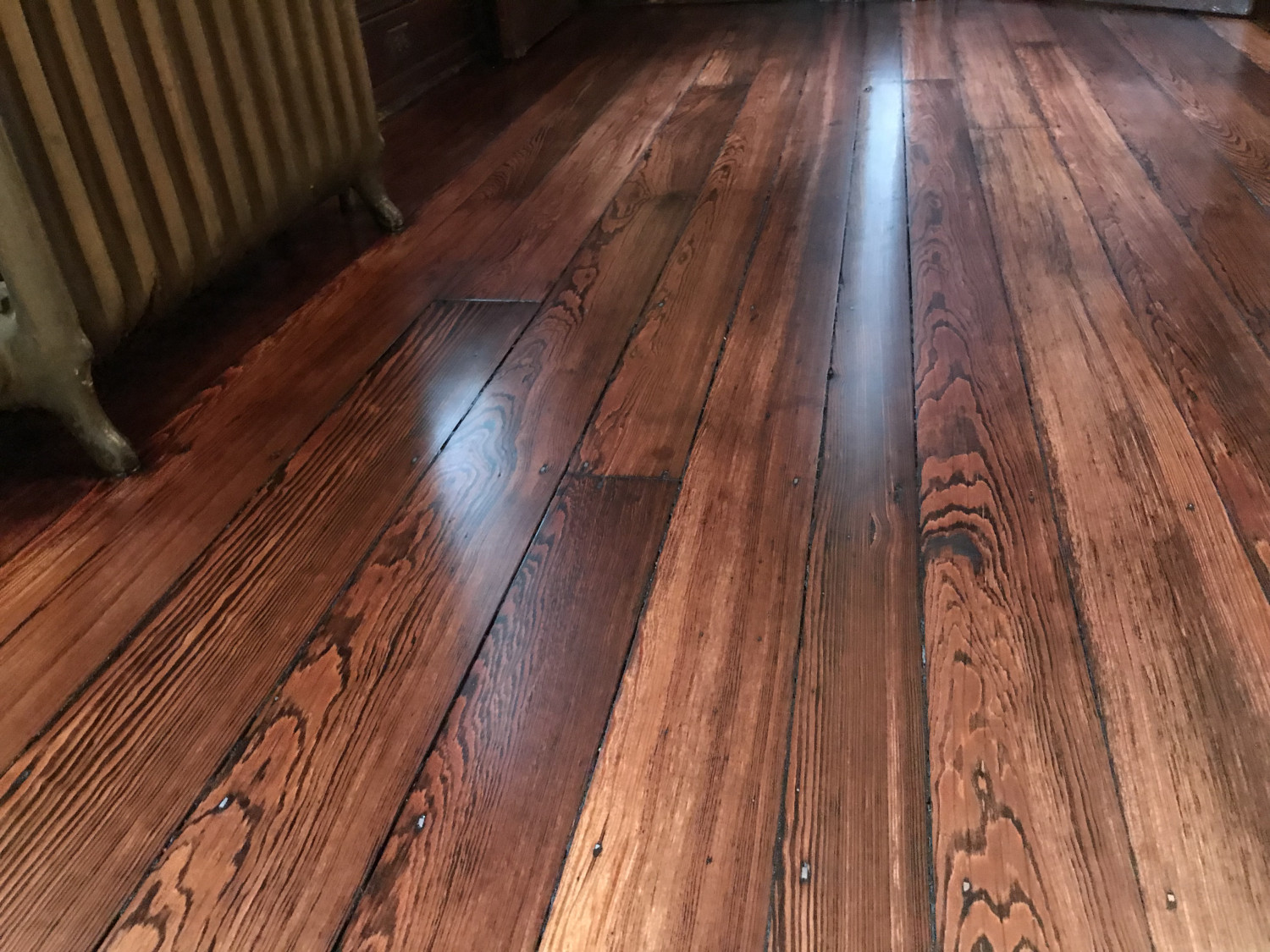
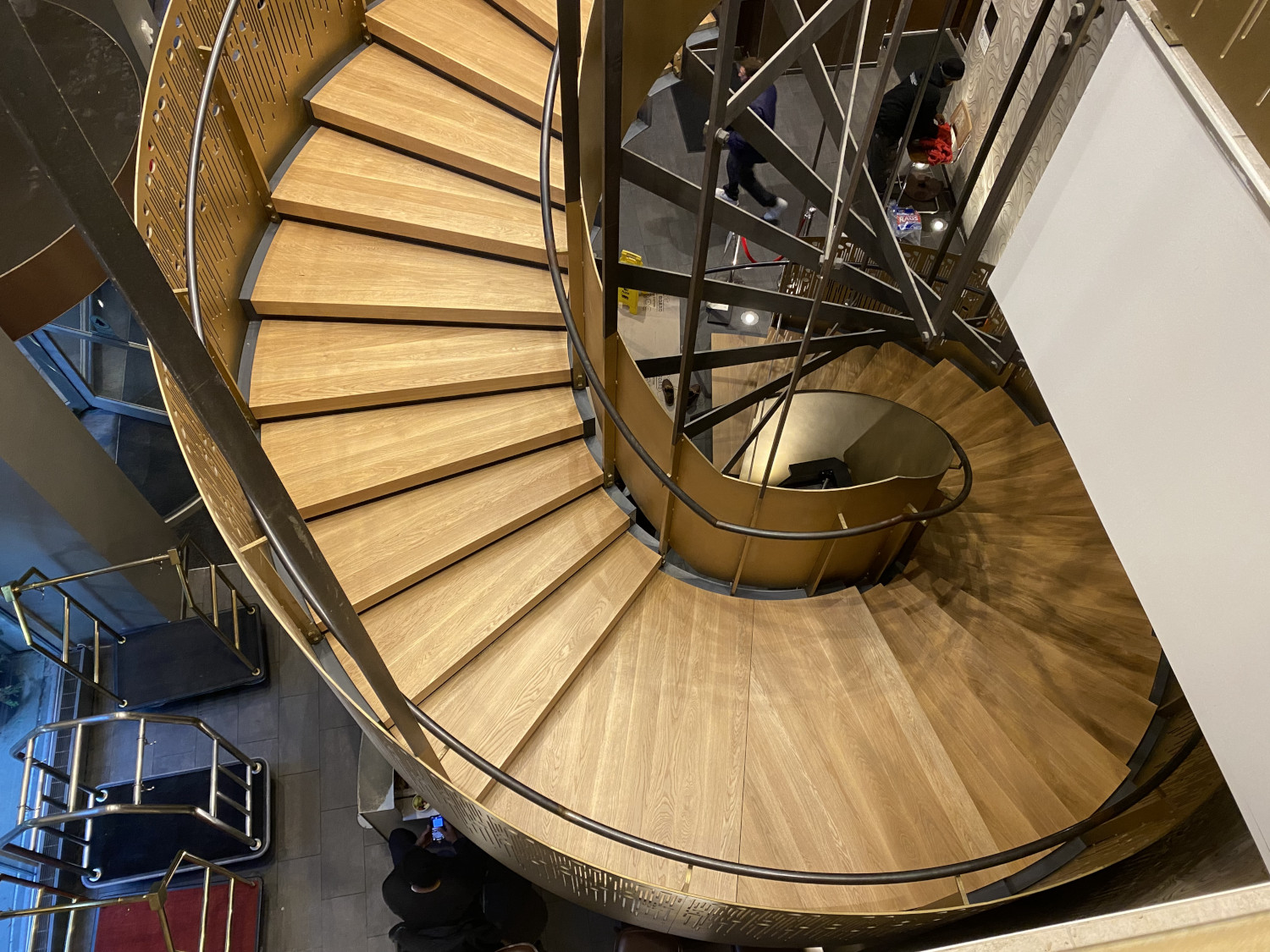
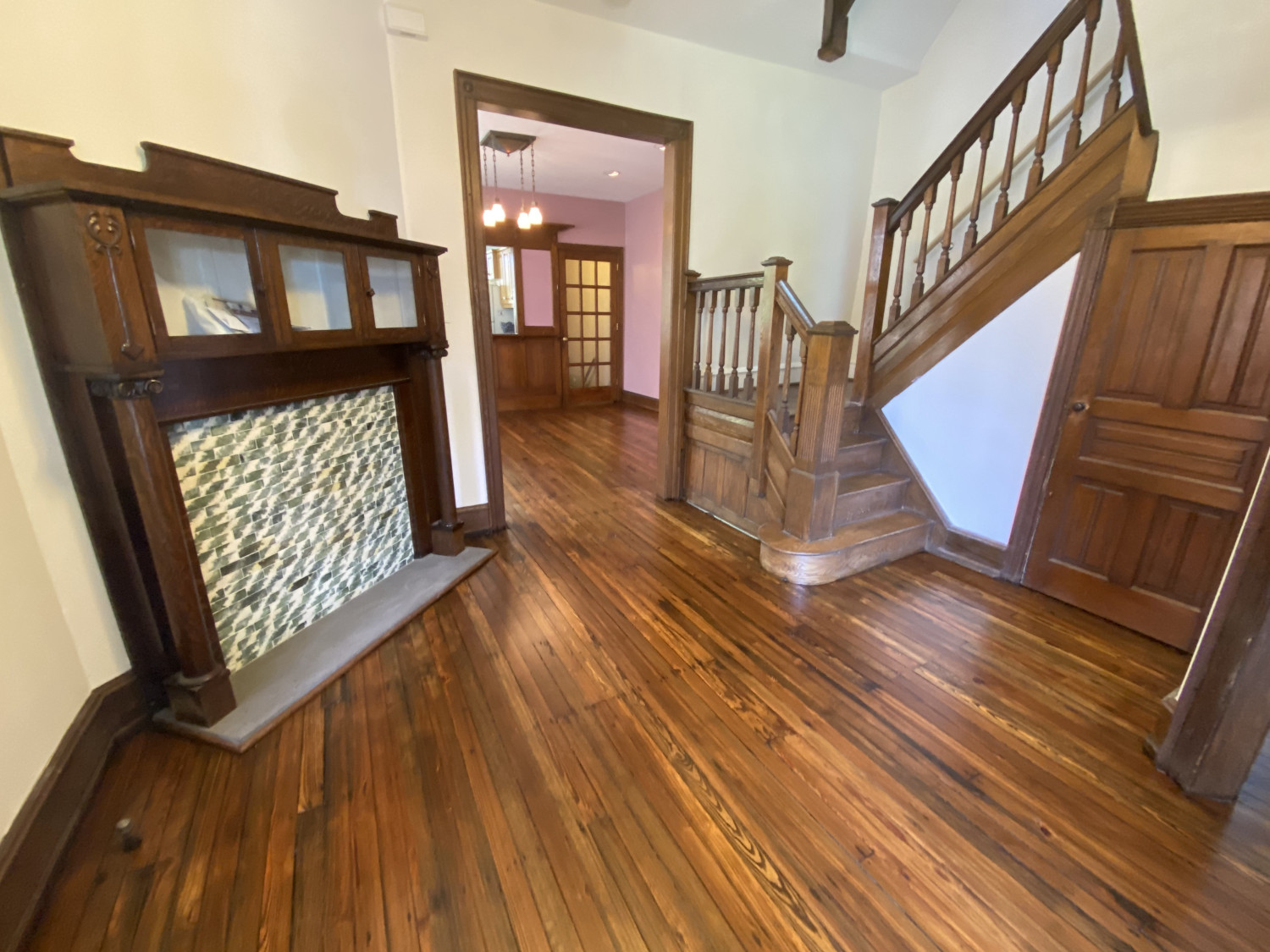

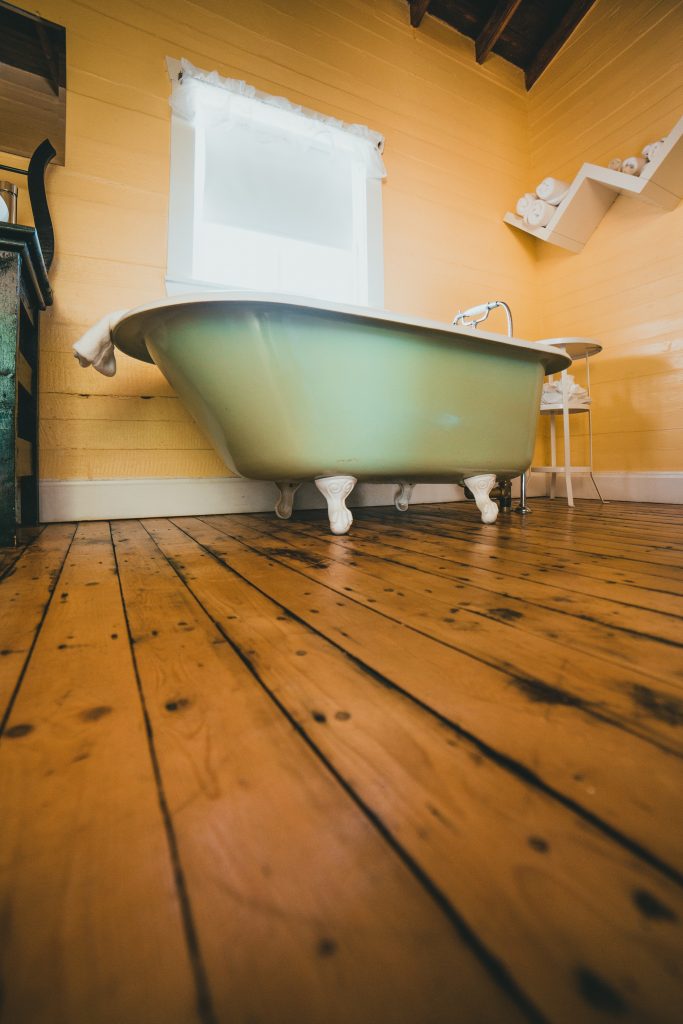
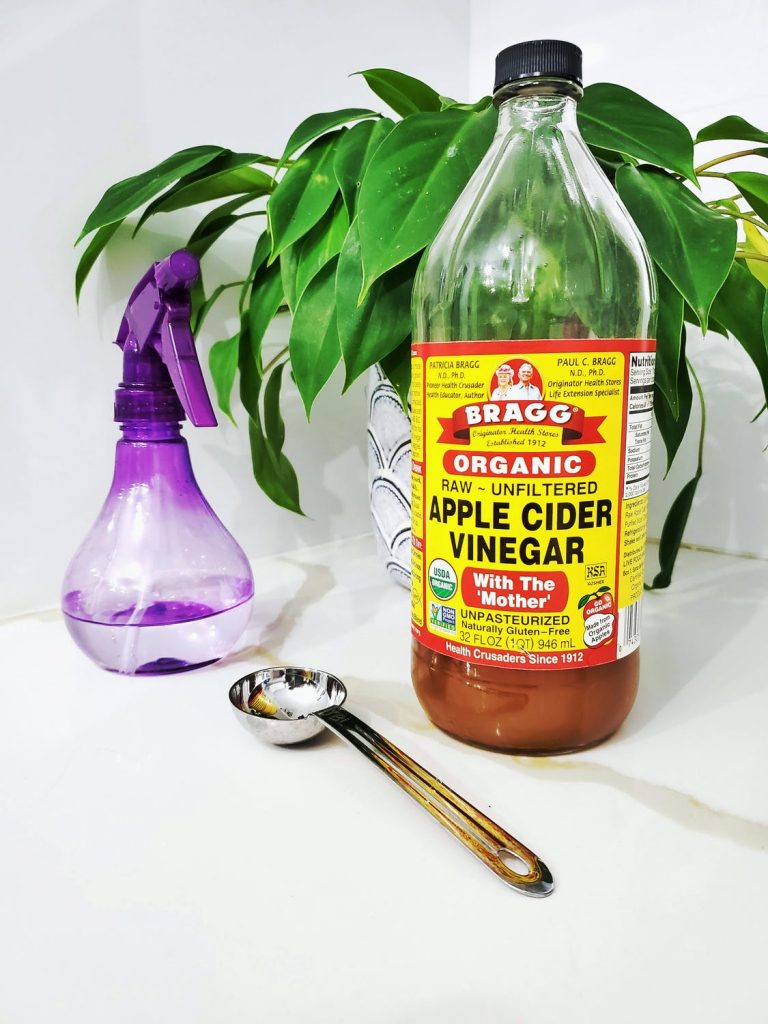
0 Comments